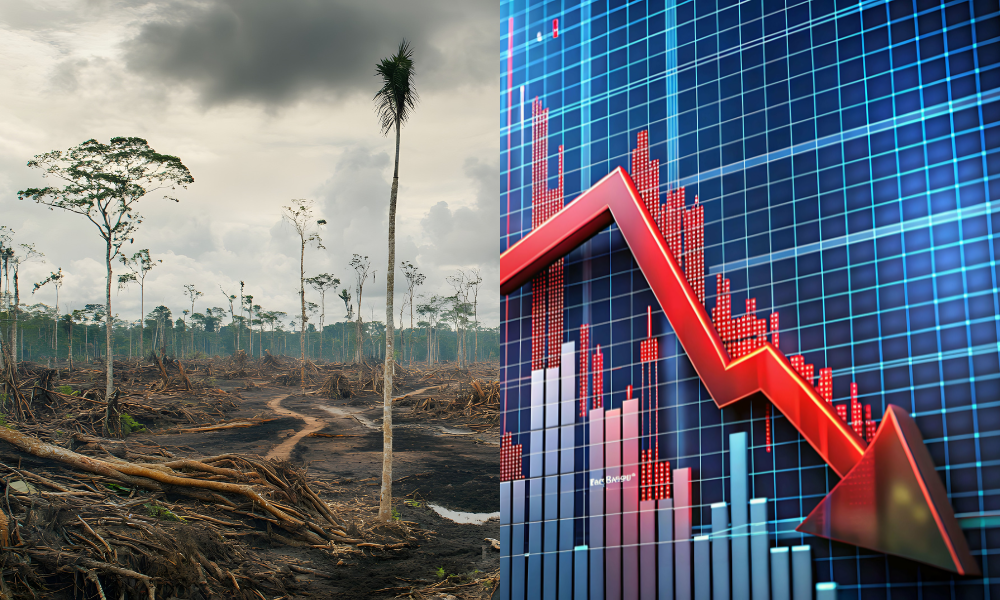
A Stark Warning Amid Record Temperatures
The study's release comes shortly after the EU's Copernicus Climate Change Service confirmed that global temperatures in 2024 had, for the first time, surpassed the critical 1.5°C threshold set by the Paris Agreement. Though this benchmark represents a short-term breach rather than a sustained one, the findings underscore the intensifying risks posed by climate change.
"Populations are already being impacted by food system shocks, water insecurity, heat stress, and infectious diseases," the report states. "If unchecked, these challenges could escalate into mass mortality, displacement, severe economic contraction, and global conflict."
The Growing Threat of Climate Tipping Points
The report emphasizes the imminent danger of crossing climate tipping points—irreversible thresholds in the Earth's systems. These include accelerated melting of polar ice caps, widespread forest dieback, and the collapse of major ocean currents. Once crossed, these tipping points could lock the planet into a state of uncontrollable warming, intensifying extreme weather events such as heatwaves, droughts, floods, and storms.
Lead author and IFoA Council Member Sandy Trust highlighted the interdependence of economies, societies, and nature. "You can't have an economy without a society, and a society needs somewhere to live," Trust said. "Nature is our foundation. Threats to this stability are risks to future human prosperity, which we must urgently act to avoid."
Economic Impact: The High Cost of Inaction
The report sharply criticizes existing economic models for underestimating the financial consequences of climate change. It highlights a widely cited prediction of a mere 2% drop in global GDP by 2100 under 3°C of warming, a figure originally published by economists William Nordhaus and Joseph Boyer.
Such assessments, the report argues, fail to account for interconnected risks or cascading impacts, rendering them dangerously misleading. "This is akin to assessing the risk of the Titanic hitting an iceberg without considering the possibility of the ship sinking, lifeboat shortages, or deaths from drowning," the authors wrote.
Instead, the IFoA's updated risk-led methodology suggests that without urgent decarbonization and nature restoration, the world faces a staggering 50% contraction in GDP between 2070 and 2090.
The Time for Action Is Now
The authors stress that mitigation costs to limit global warming to 2°C are far outweighed by the damages that would result from failing to act. "Economically, it is overwhelmingly positive to act now," the report notes.
António Guterres, UN Secretary-General, echoed the urgency in a recent address, calling for an end to government subsidies for fossil fuels, which he argued are "blocking climate action." He added, "We must tear down these walls. Every day people suffer—with their lives, livelihoods, higher insurance premiums, volatile energy bills, and rising food prices."
A Call for Systemic Change
The report highlights the importance of incorporating climate risks into decision-making processes at every level, from governments to corporations. It also calls for global policies to accelerate decarbonization, transition to renewable energy, and protect ecosystems that provide essential services such as carbon storage and water regulation.
"These are not abstract risks—they are material, measurable, and imminent," Trust stated. "What is required is a systemic shift in how we approach climate risk and resilience."
Looking Ahead
The IFoA's findings serve as a sobering reminder of the economic stakes tied to climate inaction. While the challenges are daunting, the report emphasizes that solutions already exist, from renewable energy to sustainable agriculture. Immediate and decisive action could still avert the worst impacts of climate change and secure a livable future for humanity.
"This is not just about GDP or economic growth," Trust concluded. "It's about survival—of our societies, economies, and ecosystems. The time to act is now."